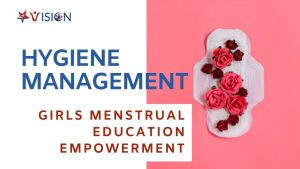Menstruation is a natural and necessary part of life for almost half the population, yet in India, it is surrounded by stigma and misinformation. Menstrual health means complete physical, mental, and social awareness and well-being during menstruation. It also includes understanding, managing, and supporting all aspects of menstruation.
Humiliation, poverty, and lack of access to basic services such as water and toilets are leading to unmet menstrual health and hygiene needs and increasing the risk of infections for women and girls.
From the past to now, there have been huge changes in menstrual health. Although women in rural and underprivileged areas still lack awareness about it, India has seen significant progress in this area, and now about 77.6% of menstruators are using hygienic menstrual products.
Why Menstrual Health Awareness Needs More Attention
Menstrual health awareness in India needs more attention due to cultural stigma, lack of education, and inadequate access to hygiene products. All these cause serious health, social, and economic issues for women and girls. Here we are giving a brief description of why this issue needs more focus:
Lack of Education
There is a huge shortage of education among girls and women in India on this topic. They are not taught properly about menstruation before they get their first period, and because of this, they don’t know how to manage it safely. Without proper knowledge, girls feel scared, confused, or ashamed, and they struggle with basic menstrual hygiene management.
Why:
- In rural areas, the shortage of education exists because schools do not cover this topic in their curriculum.
- Men and boys are not equally included in these discussions, which raises prejudice against them.
- Lack of appropriate education on it can lead girls to experience worry and poor hygiene habits.
- According to data, approximately 13% of girls are aware of menstruation in advance.
Solution:
- Must include menstrual health education in the school curriculum from a young age.
- Conduct workshops for teachers, parents, and boys to promote open discussion on it.
- Try to use common language and relatable content to make them understand it properly.
Limited Availability of Menstrual Hygiene Products
One of the important reasons for increasing awareness of menstrual hygiene is to ensure the availability of menstrual hygiene products. Awareness helps individuals understand what they need during these situations and how to cope with them.
Why:
- In most rural areas, the price of menstrual products such as sanitary pads, tampons, or menstrual cups is too expensive or unavailable.
- Because of this unavailability, many girls use unsafe materials like old cloth, rags, newspapers, or even ash.
- This puts them at risk of infection and discomfort.
Solution:
- Distribute affordable or free sanitary products in schools or other public centers.
- Encourage local production of reusable cloth pads by women’s self-help groups to lower costs.
- Improve the assessment and execution of government schemes or mobile health services in rural areas.
Common Taboos and Stigma
There is a big taboo in society regarding this topic, so people often don’t want to discuss it openly. There are several misconceptions in families and communities.
Why:
- In many communities and families, menstruation is considered impure or dirty.
- Girls, during this time, are told not to enter temples, kitchens, or touch food.
- These taboos cause girls to feel shame and remain silent, harming their confidence and mental well-being.
Solution:
- Run awareness campaigns to challenge myths and promote menstruation as a normal, healthy biological process.
- Use platforms like TV, social media, local radio, and street plays to reach different age groups and communities.
- Encourage boys to participate in these conversations to create a supportive environment.
It Harms the Health Condition
The menstrual cycle is very important for any girl, and poor hygiene can lead to serious health issues that may affect her entire life.
Why:
- It can cause UTIs (Urinary Tract Infections).
- It can also lead to RTIs (Reproductive Tract Infections).
- It can also increase the chances of gynecological diseases, which may affect reproductive health in the long run.
Solution:
- Promote proper hygiene education on how to use and dispose of pads or clean reusable products.
- Distribute instructional leaflets or videos in schools and health centers.
- Train community health workers to talk openly about menstrual health and hygiene.
It Affects Employment and Education
A lack of menstrual health awareness can disturb work and education. It can lower school attendance and reduce the presence of female employees in offices.
Why:
- Many girls miss school or drop out completely because there are no clean toilets or private spaces to manage hygiene.
- Girls often miss school due to pain, fear of leakage, or lack of awareness on how to manage their periods.
- Women in workplaces also face difficulties due to a lack of toilets, breaks, and privacy, leading them to discontinue work.
Solution:
- Build separate, clean, and safe toilets for girls in all schools with facilities for pad disposal.
- Ensure the availability of sanitary pads in schools, colleges, and workplaces.
- Create workplace policies that provide flexibility and support during menstruation so employees feel comfortable.
Conclusion
Menstrual health is very important for girls’ and women’s overall well-being, yet it remains neglected in many parts of India due to a lack of awareness, education, access to hygiene products, taboos, and weak infrastructure. These issues not only affect their health but also become obstacles to continuing education, employment, and equal participation in society.
Making people aware of menstrual health is important because it is not just a health issue — it’s about dignity, equality, and empowerment. By spreading awareness, educating communities, improving access to menstrual products, and ending taboos, we can ensure that every girl and woman manages her period with confidence, safety, and respect.

